There’s a scene in Wynonna Earp: Vengeance in which sisters Wynonna and Waverly Earp fend off a couple of high school mean girls in a bar brawl. One of their opponents declares of Waverly, “I can take the little lesbian.” That’s when big sister, Wynonna, Wyatt Earp’s heir in the beloved science fiction universe of Wynonna Earp, corrects her attacker, saying, “She’s bisexual, you Muppet!”
“Actually, I identify as pansexual now,” Waverly clarifies while squirming out of a headlock. The character came out as bisexual after falling in love with her now wife, Sheriff Nicole Haught (Kat Barrell), during the show’s first season in 2016. As more expansive identities have emerged in the eight years since Waverly and Nicole first locked lips in their supernatural town of Purgatory’s police station, the already progressive Wynonna Earp also continued to evolve. Indicative of Wynonna Earp creator Emily Andras’s self-reflexive humor, in the brawl scene, Melanie Scrofano’s Wynonna responds to Waverly ID’ing as pan saying, “Ah, baby girl, your journey.”
It’s as much an affirmation from one sister to the other as it is a nod to Wynonna Earp’s resilience as ardent fans helped save the series from cancelation more than once. It's the little supernatural queer show that could. While Wynonna and the gang fought ghoulish, ghostly revenants on-screen, the fans battled for Earp to live another day — or for another few seasons and at least one special, Wynonna Earp: Vengeance (now available on Tubi).
 Dominique Provost-Chalkley and Kat Barrell in Wynonna Earp: VengeanceCourtesy Tubi
Dominique Provost-Chalkley and Kat Barrell in Wynonna Earp: VengeanceCourtesy Tubi
Though Waverly explaining her pansexuality is a blip in time in the movie that finds Wynonna returning to Purgatory when some new demons infiltrate the town, it’s Dominique Provost-Chalkley’s favorite part of the project.
“I was so proud when I read those words. I thought that was so cool that especially in that moment where it's just such an accepted statement — to witness [these] characters evolving in their identity and the terms and the labels that they choose to describe their experience at that moment,” says Provost-Chalkley, who is queer and nonbinary. “And [Waverly] being so accepted and embraced by Wynonna, I just thought was so beautiful. It actually really moved me.”
“I said it was my favorite line in the whole special because I guess on a personal level, it really speaks to my own journey with my own discoveries and in my sexuality and my gender expression, and that it's a continuous discovery, and it kind of showcases that in such a beautiful way. And I felt very proud of Waverly,” they add.
 Dominique Provost-Chalkley, Melanie Scrofano, Kat Barrell in Wynonna Earp: Vengeance Courtesy Tubi
Dominique Provost-Chalkley, Melanie Scrofano, Kat Barrell in Wynonna Earp: Vengeance Courtesy Tubi
Andras, who’s been making beloved queer TV since 2010’s Lost Girl, arrived at Vengeance knowing she’d only make it if everyone was on board. And then, as the series' final episodes were shot during the pandemic and ran in the spring of 2021, only if she could allow the actors space to meet the characters where they were.
“These characters have matured, and so have we. We’re going to show up on set as we are. You’re going to look gorgeous and wonderful, but a little bit older, and those are the stories we’re going to tell in this special,” Andras says. “So it all kind of came together and then it felt really organic.”
As for that line of Waverly’s, Andras says, “How often do you get to announce you're pansexual at a brawl, at a wake…a dream scenario for the queer community? Come on. That's how I want to do it. That's how I wish I could have.”
"I also kind of love that on earth, these people, their sexuality and their gender identity is such a part of who they are, but it's not all they are. They're not all the same. What a concept," Andras adds. "I certainly think TV has evolved since 2016 to tell those kinds of stories and those kinds of nuanced characters."
 Dominique Provost-Chalkley and Kat Barrell in Wynonna Earp: VengeanceCourtesy Tubi
Dominique Provost-Chalkley and Kat Barrell in Wynonna Earp: VengeanceCourtesy Tubi
Wynonna Earp has been game-changing since Andras conceived of it with its clever subverting of the tropes of the Western genre by pulling women out of the domestic space and placing them in iconic, traditionally male roles like Wynonna, a bounty hunter, and Nicole, a lesbian sheriff. Another stereotype Wynonna Earp subverts is the notion of “lesbian bed death.” Now married and even when enduring normal marital arguments, Nicole and Waverly are still hot for each other.
“I love that Waverly and Nicole maintain this sexual chemistry and this passion. And I think there is something to be said about talking openly about desire and about sex and about our wants and how they change and how our identities change and how maybe what we [are] changes,” says Barrell, who credits Andras for always being “sex positive.”
“That's a huge part of keeping sexual chemistry alive,” she adds. “The more we can talk about it in an open, accepting way, I think the more it’s destigmatized a little bit for people maybe in their own lives and their own relationships of like, Oh, yeah, I should talk to my partner openly about this. It's OK to express my desires.”
For fans who joined the #FightForWynonna campaign that included a billboard in Times Square in 2019 and those who are just discovering the series via the Vengeance special on Tubi, Andras says she’ll continue the Earp legacy as long as there’s an audience for it that includes its message of living to one's full capacity.
“That’s a theme of Wynonna IP that reappears in so much of my work. It is one that a lot of people in the LGBTQ+ community deal with — the idea of being brave enough to live the life you want and identify how you want versus how society tells you you have to be, or your family or your small town tells you what to be,” Andras says. “I think finally coming into your own and being able to define yourself is a theme that every character on Wynonna Earp has gone through.”
Watch the full interview with Provost-Chalkley and Barrell above.




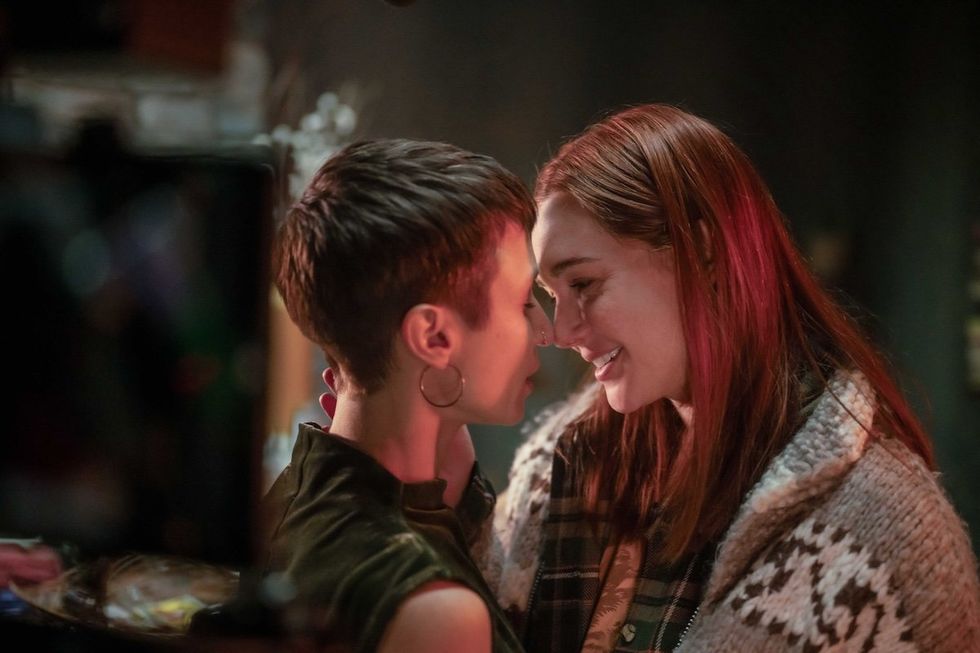 Dominique Provost-Chalkley and Kat Barrell in Wynonna Earp: VengeanceCourtesy Tubi
Dominique Provost-Chalkley and Kat Barrell in Wynonna Earp: VengeanceCourtesy Tubi 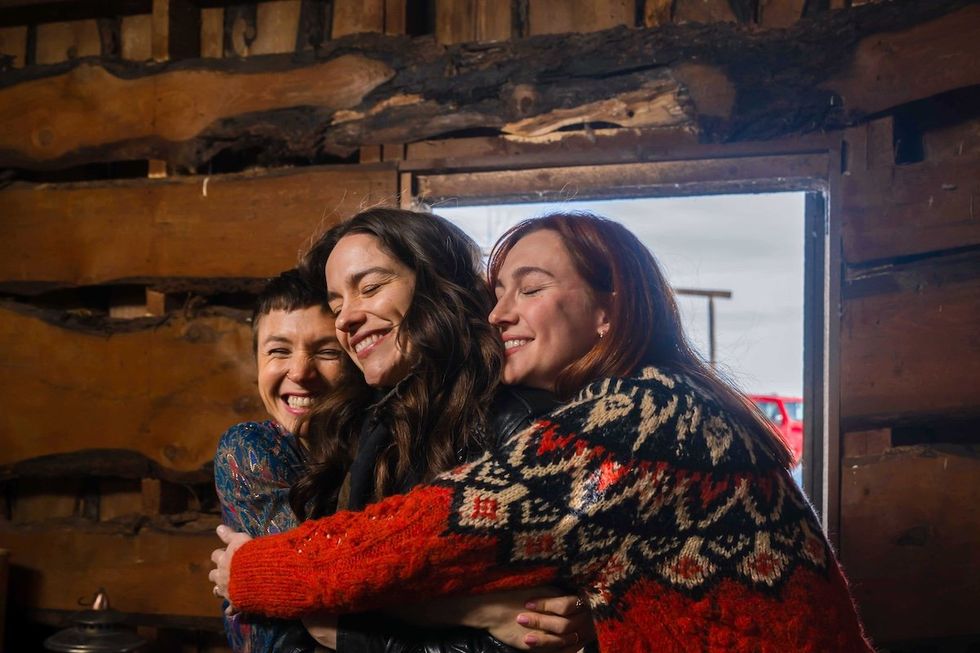 Dominique Provost-Chalkley, Melanie Scrofano, Kat Barrell in Wynonna Earp: Vengeance Courtesy Tubi
Dominique Provost-Chalkley, Melanie Scrofano, Kat Barrell in Wynonna Earp: Vengeance Courtesy Tubi  Dominique Provost-Chalkley and Kat Barrell in Wynonna Earp: VengeanceCourtesy Tubi
Dominique Provost-Chalkley and Kat Barrell in Wynonna Earp: VengeanceCourtesy Tubi 














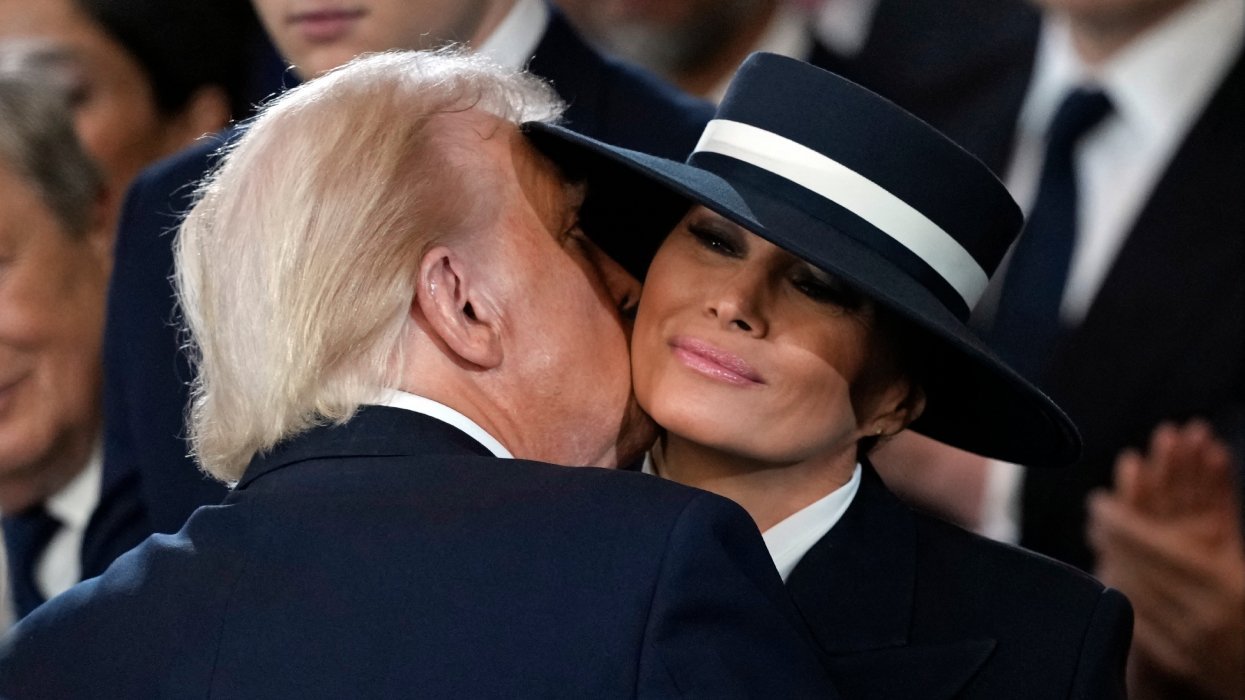


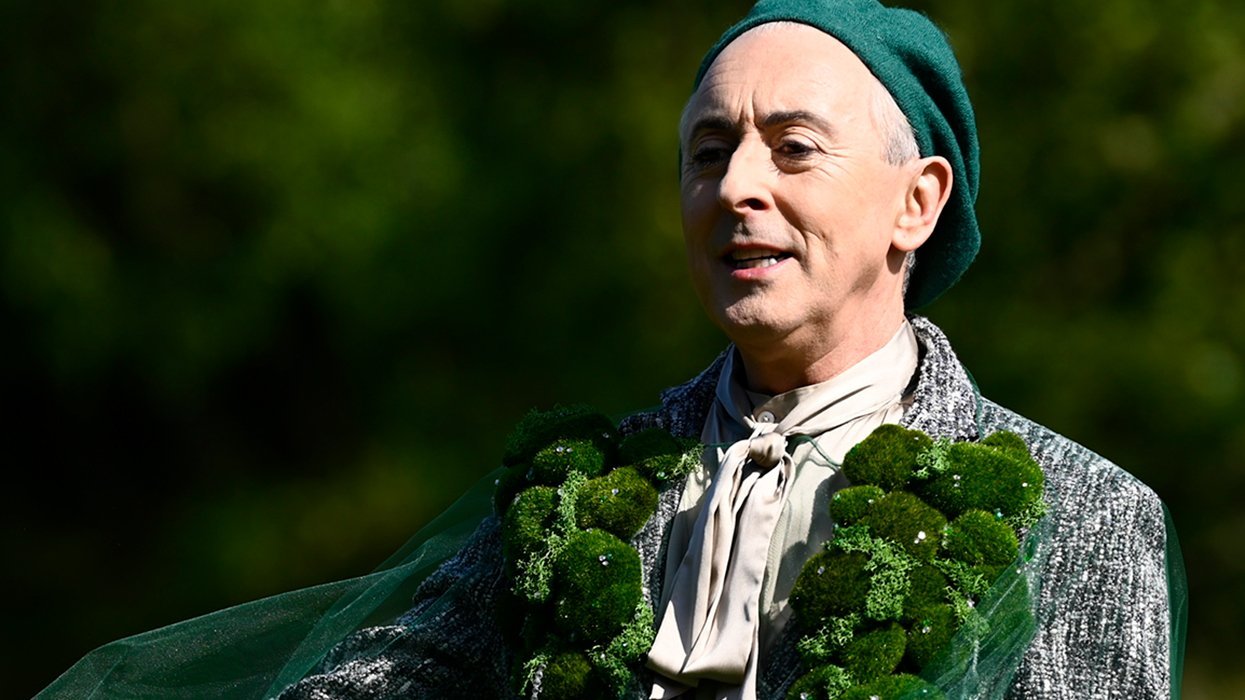
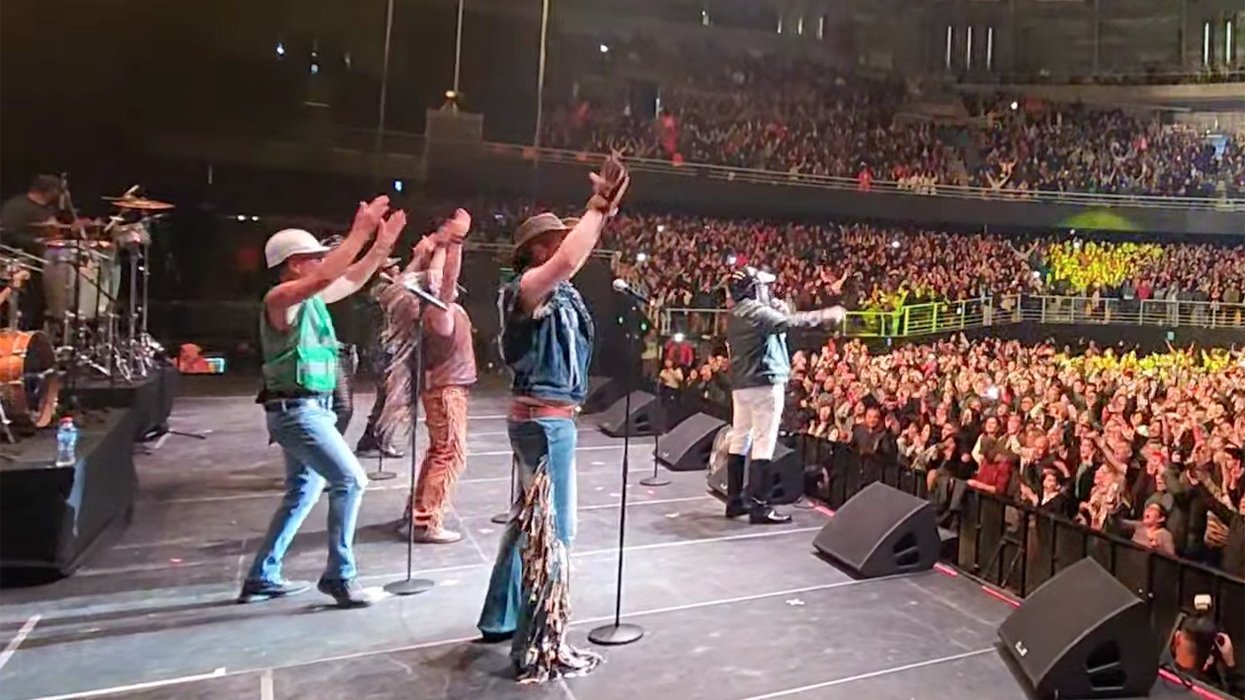
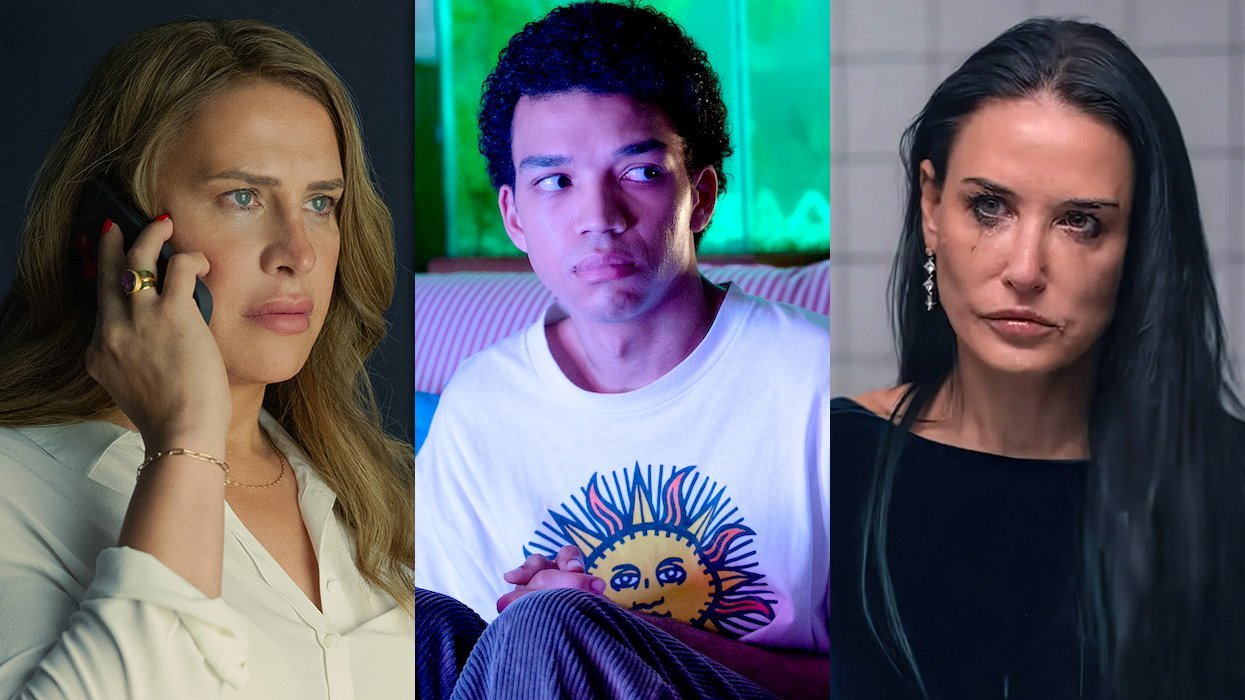
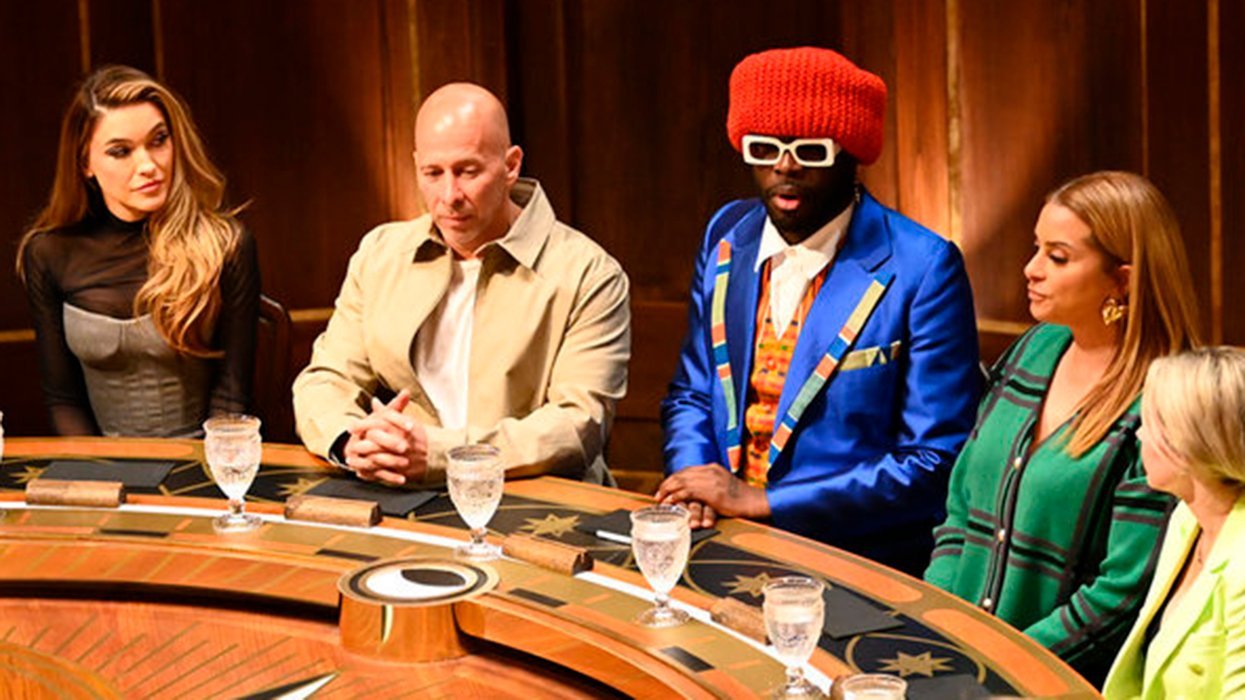
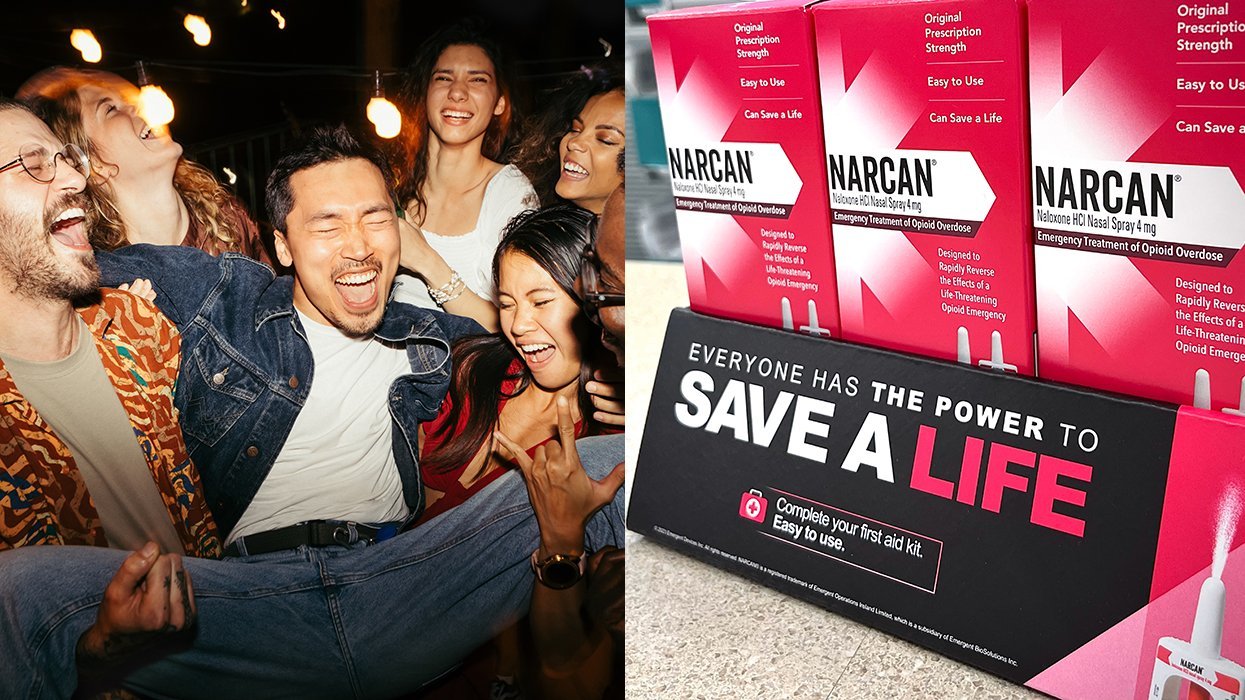
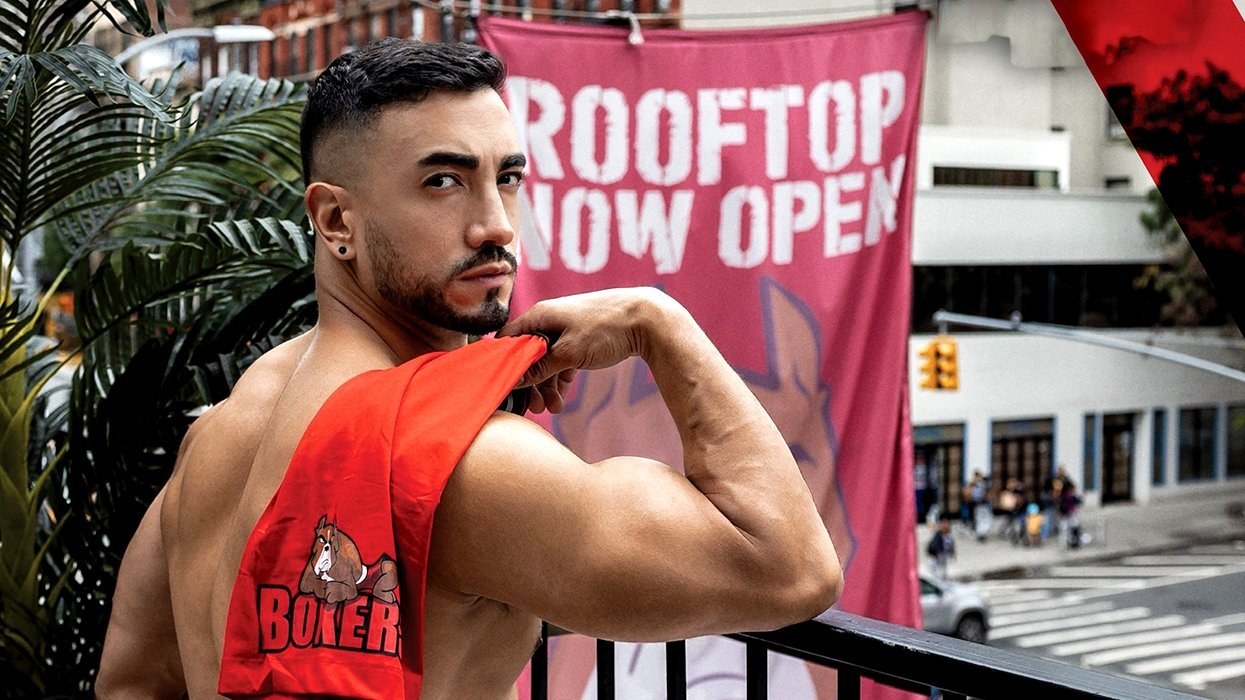
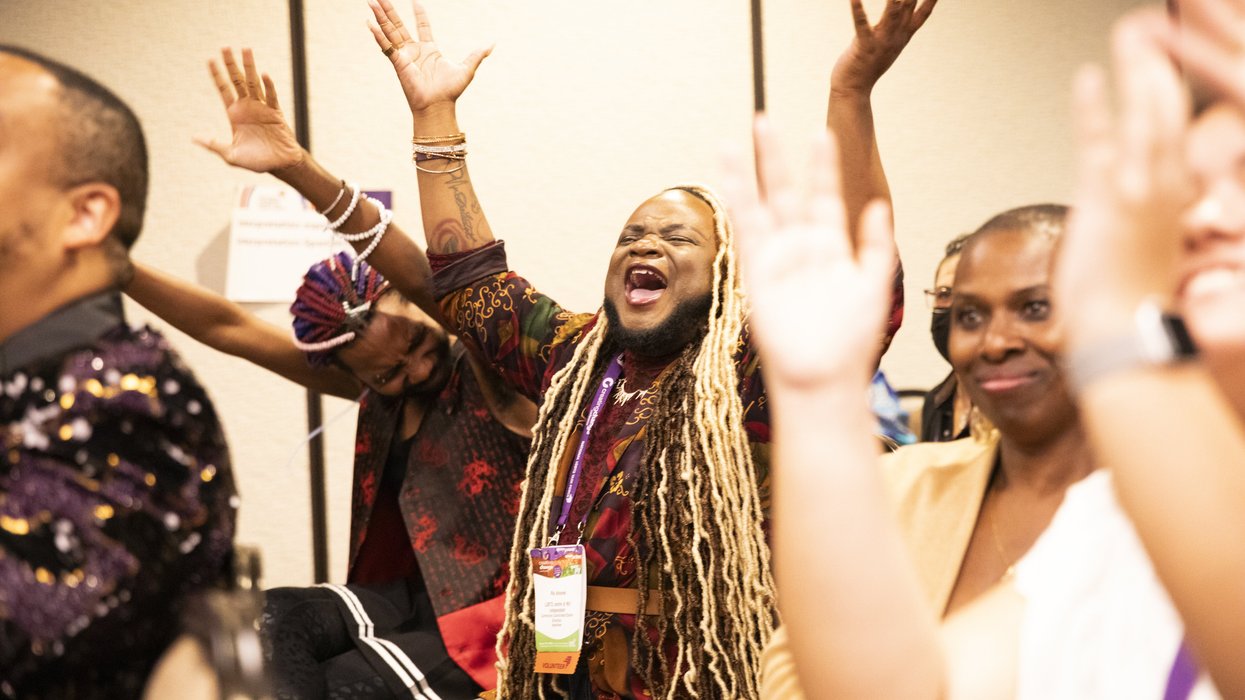
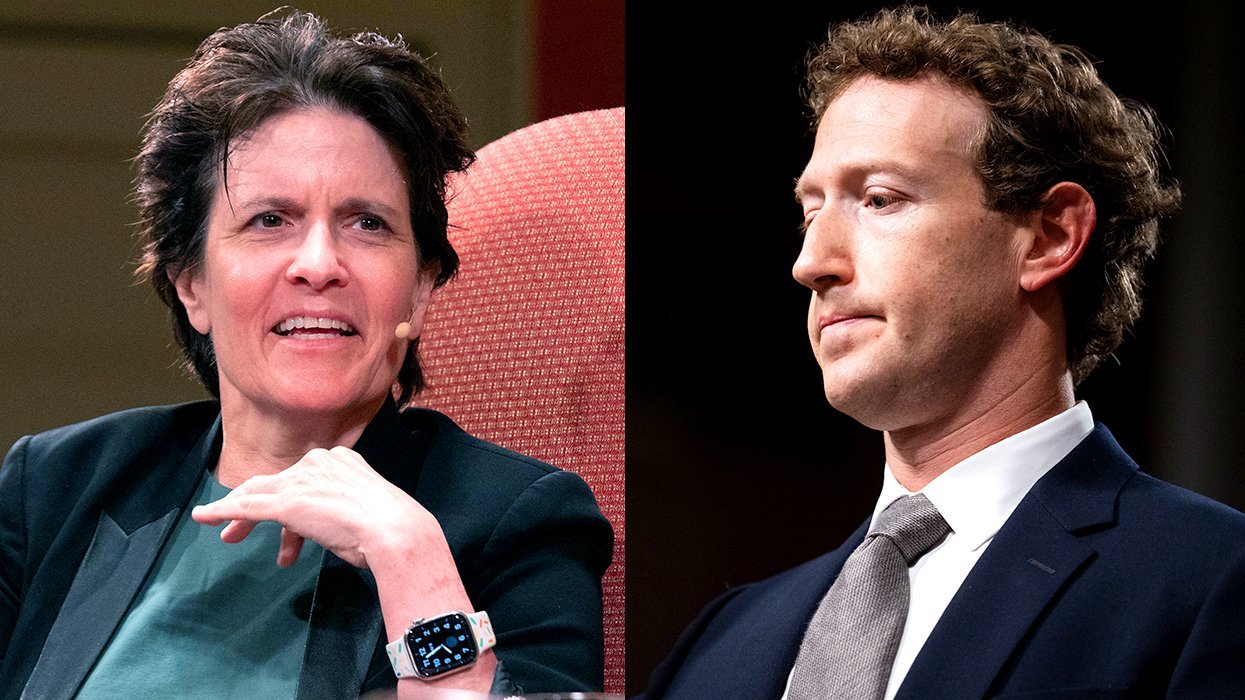
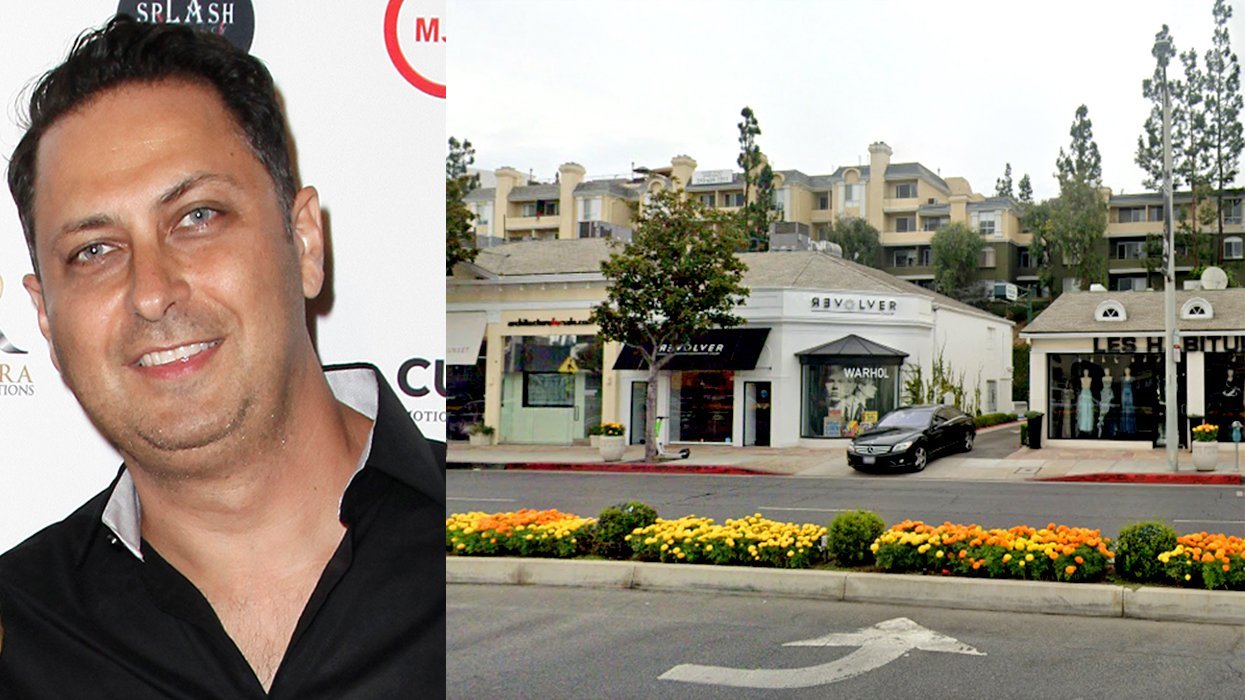
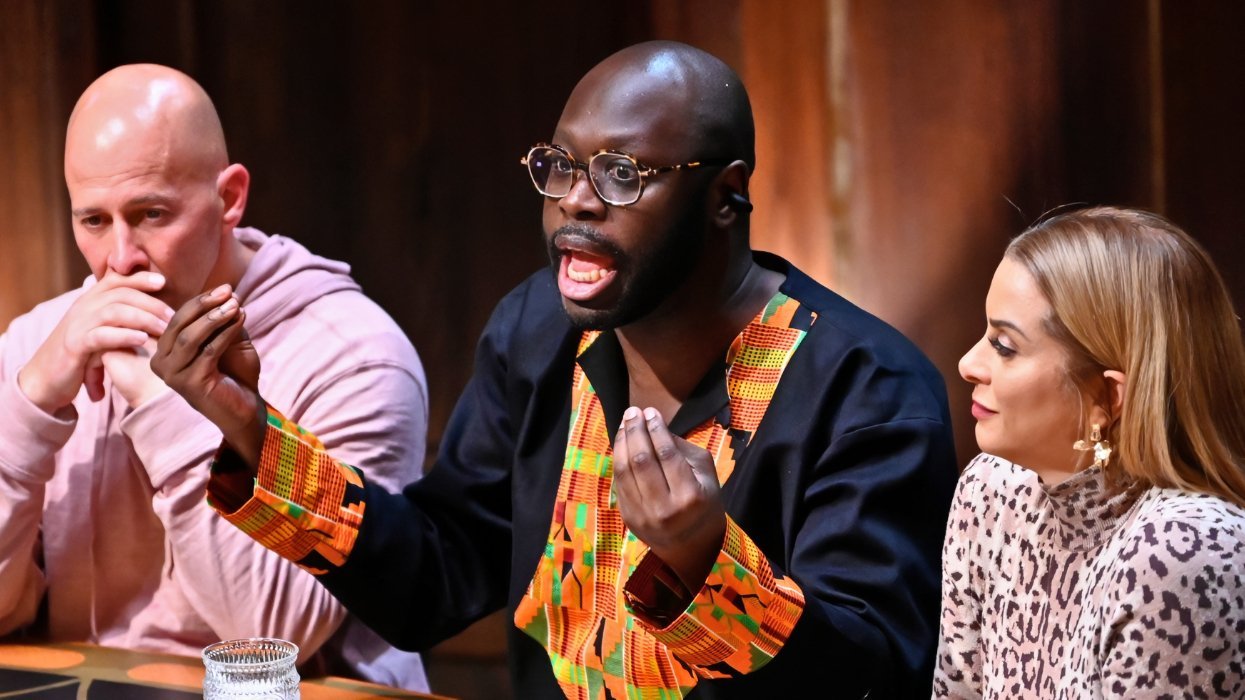
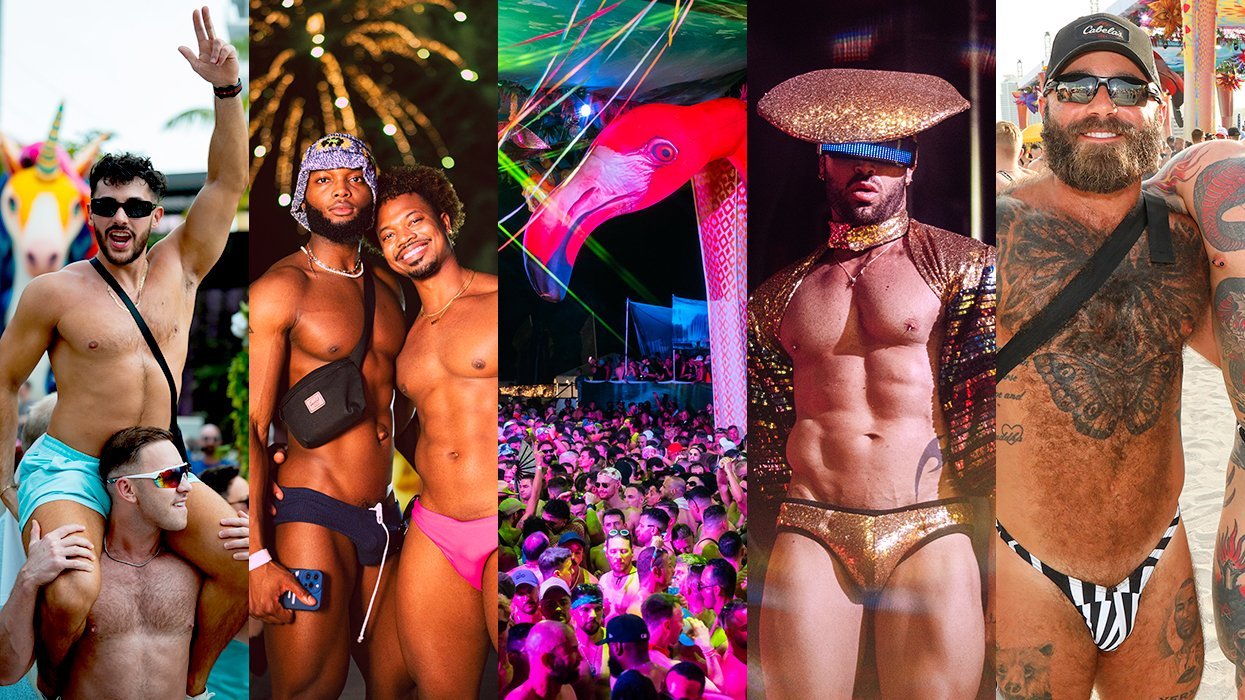

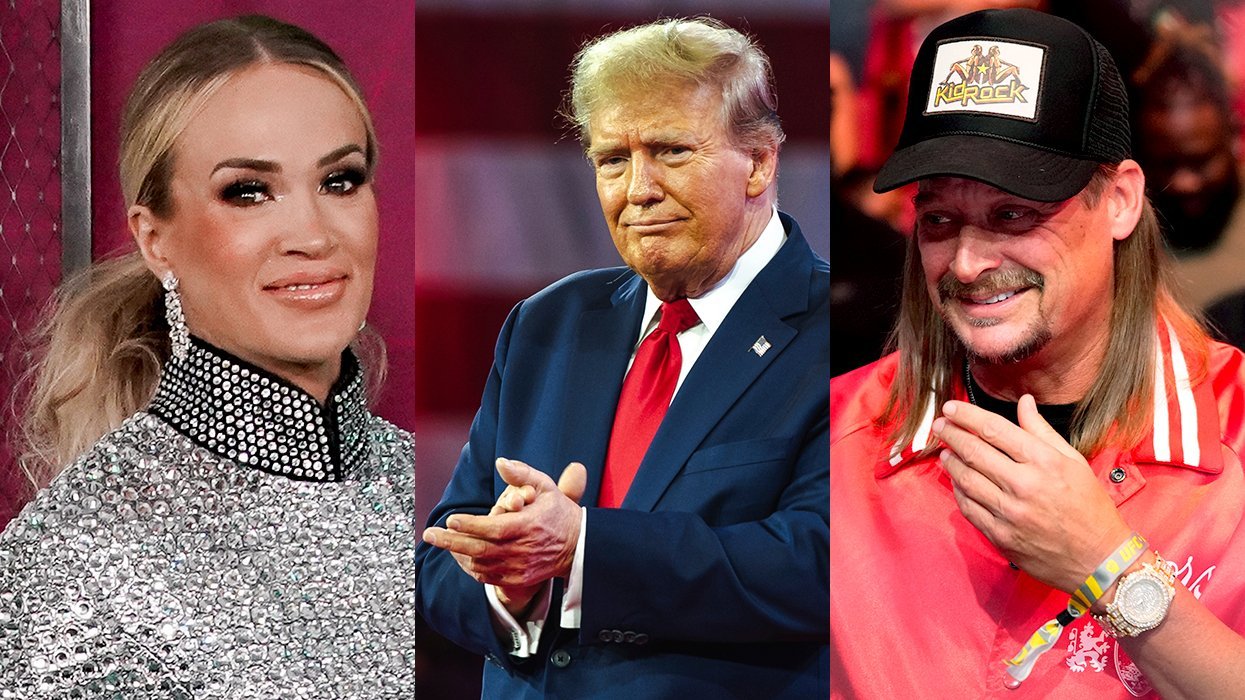
















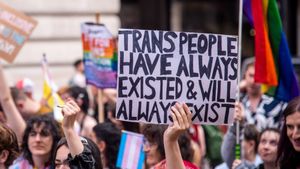

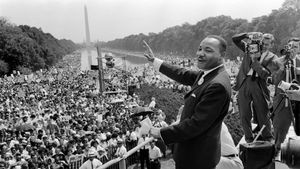




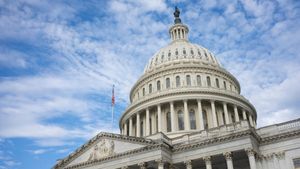













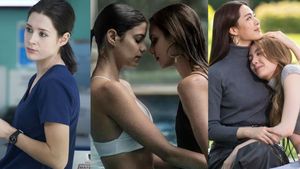

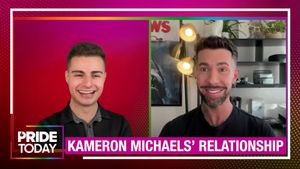










Beware of the Straightors: 'The Traitors' bros vs. the women and gays